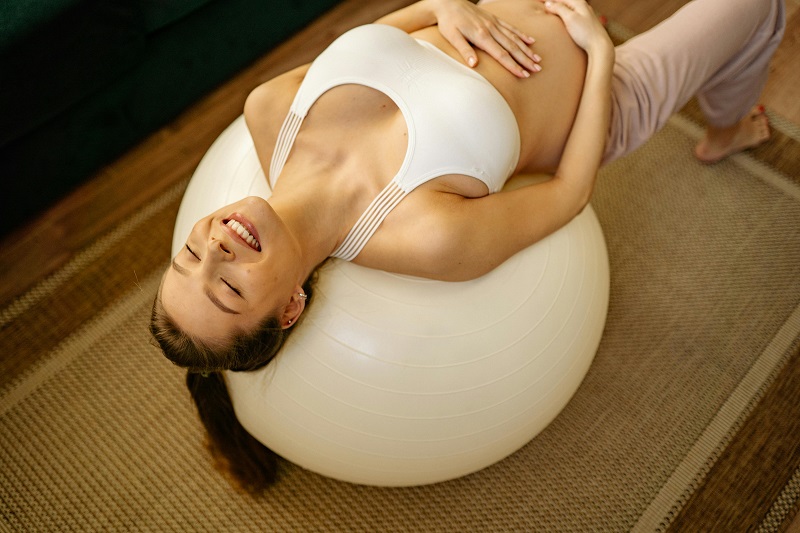Stress affects millions of Americans daily, triggering physical and emotional responses that can impact overall health and well-being. Meditation offers a scientifically proven approach to managing stress by training the mind to respond rather than react to stressful situations. Through regular practice, meditation can reduce stress hormones, improve emotional regulation, and build lasting mental resilience.
Understanding Stress and How It Affects Your Body
At its core, stress is your body’s reaction to a challenge or demand. We all experience it. Common triggers include work pressure, financial worries, relationship issues, and health concerns. These modern psychological stressors activate the same survival mechanisms our ancestors developed for physical threats, like facing a predator. The problem is, our bodies don’t always distinguish between a looming deadline and a real danger. This is where understanding how chronic stress impacts your health becomes crucial.
When you perceive a threat, a tiny region in your brain called the amygdala sounds the alarm. This triggers a cascade of stress hormones, including cortisol, preparing you for “fight-or-flight.” This response is incredibly useful for acute stress—it gives you the energy to swerve out of the way of a car.
However, when stressors are constant, this system stays activated. This chronic stress is harmful. It can lead to a persistently increased heart rate, elevated blood pressure, muscle tension, and disrupted sleep patterns. Over time, this constant activation can contribute to burnout, anxiety, and a weakened immune system.

How Meditation Relieves Stress
So, how does meditation fit in? It works by creating a pause—a space between a stressful trigger and your reaction to it. It’s not about emptying your mind, but about observing your thoughts without getting swept away by them. It is a foundational pillar of effective stress management. The three primary benefits are:
- Present-Moment Awareness: It pulls you away from dwelling on past regrets or worrying about future “what-ifs.”
- Acceptance: You learn to acknowledge thoughts and feelings without fighting them.
- Non-Judgmental Thinking: You start to view stress as a part of the human experience, not a personal failure.
Scientific Evidence: Meditation’s Impact on the Brain
This isn’t just a feeling; it’s biology. Research has shown that regular meditation can actually change your brain. Studies suggest it may decrease the gray matter density in the amygdala, making the brain less reactive to stress triggers.
Research from institutions like the University of California, Davis, has shown that meditation can lower levels of cortisol. It actively engages your body’s relaxation response, which counteracts the physiological effects of stress. These changes aren’t imaginary; consistent practice, often noticeable after about eight weeks, leads to measurable shifts in brain structure and function.
Types of Meditation for Stress Management
There’s no one-size-fits-all approach to meditation. The best technique is the one you’ll actually do. Different approaches work for the various types of stress we encounter, and finding your fit is part of the journey. Here are some of the most effective and well-researched methods.
Mindfulness Meditation
Mindfulness meditation is perhaps the most studied form for stress reduction. The practice involves focusing on an anchor, like your breath, and simply noticing when your mind wanders. When it does, you gently guide your attention back without judgment. Mindfulness-Based Stress Reduction (MBSR) programs, which have shown significant effects on stress and anxiety, typically recommend 40-45 minutes of practice daily.
Body Scan Meditation
If you hold stress physically—in your shoulders, neck, or back—the body scan meditation can be incredibly helpful. You lie down and progressively bring your attention to different parts of your body, from your toes to the top of your head. By tuning into physical sensations, you can release stored tension and distract your mind from anxious thoughts.

Mantra Meditation
Mantra meditation involves silently repeating a calming word or phrase to quiet distracting thoughts. Transcendental Meditation (TM) is a well-known type of mantra meditation. Research on TM, which typically recommends two 20-minute sessions per day, shows it effectively lowers cortisol levels both during and after practice.
Loving-Kindness Meditation
Also known as metta meditation, this practice focuses on cultivating feelings of compassion. You mentally send goodwill to yourself and others by repeating phrases like, “May you be happy. May you be healthy. May you be at peace.” Loving-kindness meditation reduces stress by fostering positive emotions and decreasing self-criticism.
Walking Meditation
For those who find sitting still a challenge, walking meditation is a great alternative. It combines gentle physical movement with mindful awareness. You simply slow your pace and focus on the sensation of your feet on the ground, the movement of your legs, and the environment around you, without a specific destination in mind.
Guided Meditation and Visualization
Guided meditation is perfect for beginners. You follow an instructor’s voice, either in person or through an app, as they lead you through relaxation techniques and mental imagery. This provides structure and makes it easier to stay focused. Popular platforms like Calm, Headspace, and the Healthy Minds Program offer guided sessions ranging from 3 to 45 minutes.
Breathing Techniques for Stress Relief
Your breath is one of the most powerful tools you have for managing stress, and it’s always with you. Controlled breathing exercises can produce immediate calming effects by activating your parasympathetic nervous system, which slows your heart rate and lowers blood pressure. These methods are a core component of deep breathing for stress management.
Mindfulness of Breath
This is the foundation. Sit quietly and bring your full attention to the natural rhythm of your breathing. Notice the air entering your nostrils and filling your lungs. Don’t try to change it. When your mind wanders, gently return your focus to the breath. This simple practice builds concentration and grounds you in the present.
4-7-8 Breathing
The 4-7-8 technique is especially effective for acute stress or before sleep. Here’s how you do it:
- Inhale through your nose for a count of 4.
- Hold your breath for a count of 7.
- Exhale completely through your mouth for a count of 8.
Box Breathing
Also known as square breathing, box breathing is used by military personnel and first responders to stay calm under pressure. You visualize a box:
- Inhale for 4 counts (tracing the first side).
- Hold for 4 counts (tracing the top).
- Exhale for 4 counts (tracing the third side).
- Hold for 4 counts (tracing the bottom).
Diaphragmatic Breathing
Many of us take shallow breaths from our chest. Diaphragmatic (belly) breathing engages your diaphragm for deeper, more relaxing breaths. Place a hand on your abdomen and feel it rise as you inhale and fall as you exhale. This technique maximizes oxygen intake and promotes a profound sense of calm.

Health Benefits of Meditation for Stress
The benefits of a consistent meditation practice are both immediate and long-term, touching nearly every aspect of your well-being.
Mental and Emotional Benefits
- Reduced anxiety and feelings of depression
- Improved emotional regulation and patience
- Increased self-awareness and focus
- Greater mental resilience in the face of challenges
Physical Health Benefits
- Lowered resting heart rate and blood pressure
- Improved sleep quality
- Reduced chronic pain and tension headaches
- Strengthened immune function
Research suggests meditation helps manage symptoms of stress-related conditions like IBS and, much like engaging in regular physical activities to reduce stress, contributes to overall physical health.
Getting Started with Meditation for Stress
Starting a meditation practice is simpler than you might think. You don’t need special skills or equipment, just a willingness to try. It can be a great tool while you learn how to relieve stress quickly in acute moments.
How Long Should You Meditate?
Consistency matters more than duration. While some programs recommend longer sessions, studies show that even 10 minutes a day can provide significant stress-reduction benefits for beginners. It’s better to meditate for 5-10 minutes every day than for one hour once a week.
Tips for Building a Meditation Practice
- Start Small: Begin with just 3-5 minutes and gradually increase the time.
- Be Consistent: Try to meditate at the same time each day to build a habit.
- Find a Quiet Space: Choose a spot where you won’t be easily distracted.
- Use an App: Guided meditations can provide helpful structure when you’re starting out.
- Be Kind to Yourself: Your mind will wander. That’s normal. The practice is gently returning your focus, not achieving perfect stillness.
- Experiment: Try different techniques to find what resonates with you.
Meditation Apps and Resources
- Calm: Offers guided meditations, sleep stories, and breathing exercises.
- Headspace: Features scientifically validated, stress-specific sessions, often starting at 10 minutes.
- Healthy Minds Program: A free, goal-driven app developed by neuroscientists.
- The Mindfulness App: Great for both beginners and experienced practitioners.
Conclusion: Your Journey to Stress-Free Living Starts Now
Stress may be an inevitable part of modern life, but it doesn’t have to control you. Through the simple yet powerful practice of meditation, you can transform your relationship with stress and reclaim your peace of mind. Whether you choose mindfulness meditation, breathing exercises, or loving-kindness practice, the key is consistency and compassion toward yourself.
Remember, meditation is not about achieving perfection or completely eliminating stress from your life. It’s about developing the mental resilience and awareness to navigate life’s challenges with greater ease and clarity. Even just 5-10 minutes a day can create meaningful changes in how you respond to stressors, both in your mind and body.
As you embark on this journey, be patient with yourself. Like any skill worth developing, meditation takes time and practice. Start small, stay consistent, and trust the process. The benefits—from reduced anxiety and better sleep to improved emotional regulation and physical health—will gradually unfold as you make meditation a regular part of your self-care routine.
Your path to a calmer, more centered life is within reach. Take that first mindful breath today, and discover the profound stress relief that meditation can bring.
For more insights on wellness, mental health, and holistic approaches to well-being, visit notonetype.org to explore additional resources and support for your journey toward a healthier, more balanced life.
Frequently Asked Questions (FAQs)
How quickly does meditation reduce stress?
Many people feel calmer immediately after a session. However, lasting changes in your brain and stress response typically develop over time. Research often points to significant stress reduction after eight weeks of consistent daily practice, but you can start noticing benefits much sooner.
Can meditation replace therapy or medication for stress and anxiety?
No. Meditation is a complementary practice, not a replacement for professional medical treatment. For diagnosed anxiety, depression, or severe stress, you should always consult a healthcare professional. Meditation can be a fantastic addition to a comprehensive treatment plan.
What’s the best time of day to meditate for stress relief?
The best time is any time you can do it consistently. Many people find that meditating in the morning sets a calm tone for the day, while an evening session helps them unwind and improve sleep. Experiment and see what fits your schedule.
Do I need special equipment or training to start meditation?
Absolutely not. All you need is a quiet place to sit or lie down for a few minutes. You don’t need special cushions, clothing, or expensive training. Simple breath awareness is a powerful practice you can do anywhere, anytime.
Is it normal for my mind to wander during meditation?
Yes, it is 100% normal. A wandering mind is not a sign of failure; it’s a sign you have a human brain! The actual practice of meditation is noticing that your mind has wandered and gently, without judgment, guiding it back to your anchor (like your breath). This very act builds your mental “muscle.”
How is mindfulness different from meditation?
Think of it this way: Meditation is the formal workout (like going to the gym). Mindfulness is the resulting fitness you can use in your daily life. Meditation is the practice you do for a set period, while mindfulness is the quality of awareness you can bring to any activity—eating, walking, or listening to a friend.


Có thể bạn quan tâm
How to Overcome Decision Fatigue: 10 Proven Strategies to Reclaim Your Mental Energy
Ever get to the end of the day and feel like you can’t even decide...
Nov
Physical Activities to Reduce Stress: Exercises for Mental Well-Being
Feeling overwhelmed? You’re not alone. When life gets hectic, our body’s stress response can go...
Nov
Stress Management: Proven Strategies to Reduce Stress and Improve Wellbeing
Stress is a universal human experience. It’s that feeling of being overwhelmed when your to-do...
Nov
Deep Breathing for Stress Management: Techniques to Calm Your Mind and Body
Breathing. It’s the first thing we do when we enter the world and the last...
Nov
Stress at Work: Causes, Signs, and Proven Strategies to Manage Workplace Stress
Stress at work affects millions of employees worldwide, leading to decreased productivity, health problems, and...
Nov
Why Am I Stressed for No Reason? 8 Hidden Causes Explained
Feeling stressed without a clear reason is more common than you might think. It’s that...
Nov